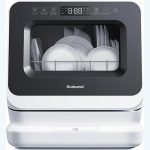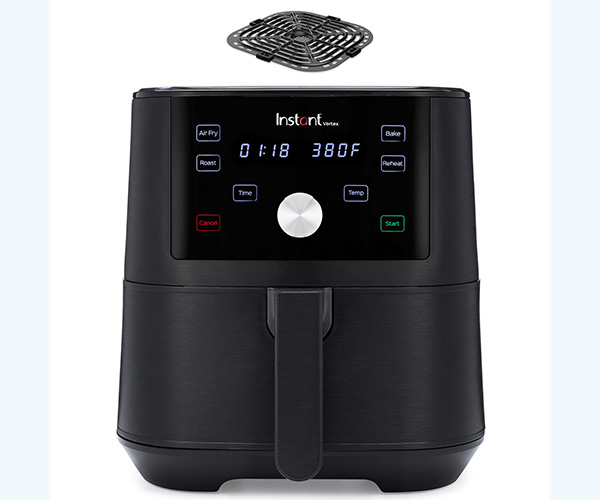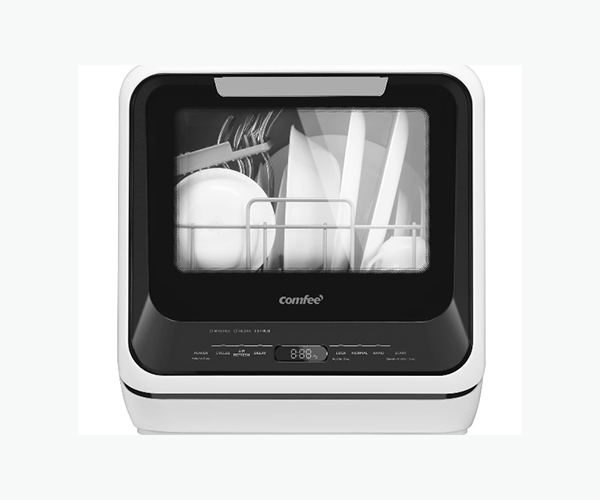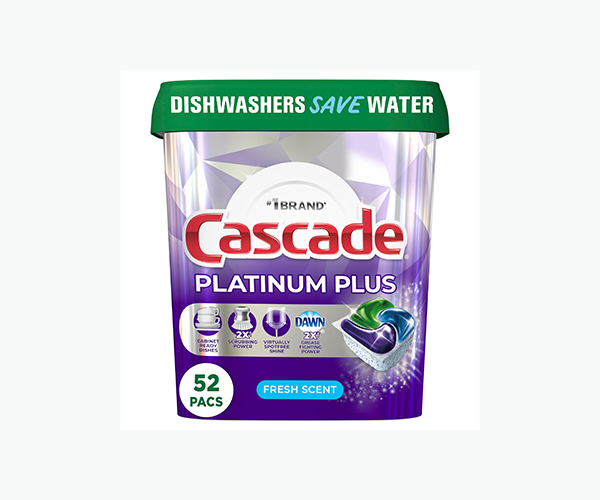Making Your Dinner While Dishwasher Cleaning Your Dishes
Introduction
Effectiveness in the kitchen has evolved from a convenience to a requirement in the modern home. Keeping a well-managed home and handling the responsibilities of daily life can often feel like a juggling act. In this regard, developing multitasking skills in the kitchen is quite beneficial. Being able to cook a tasty meal and run the dishwasher at the same time is a great illustration of this. In order to ensure a satisfying dinner and a clean kitchen, this article will discuss techniques and tips for making dinner effortlessly while your dishwasher cleans your dishes.
Key Considerations for Kitchen Efficiency:
- Understanding the Dynamics: The kitchen is the heart of the home. It’s where we prepare nourishing meals for ourselves and our loved ones. Making the most of your time in this space requires understanding how different tasks can be synchronized effectively.
- Efficiency and Time Management: Whether you’re a busy parent, a working professional, or simply someone who values efficiency, learning how to make dinner while using your dishwasher can be a game-changer. It saves time and reduces the feeling of being overwhelmed by household chores.
The Magic of Multitasking:
Multitasking in the kitchen might seem daunting at first, but with a bit of practice and some smart strategies, it can become second nature. The key is to align the cooking and cleaning processes in a way that they complement each other, rather than compete for your attention.
- Planning Ahead: Before you even start cooking, think about the dishes you’ll be using and how you can organize them for easy cleaning. This could mean soaking pots and pans as you go or loading the dishwasher in stages throughout your cooking process.
- Efficient Use of Time: While waiting for your food to cook, you can rinse and load the dishwasher. This not only helps in keeping the kitchen clean but also ensures that by the time you’re done eating, most of your cleanup is already taken care of.
- Organization is Key: Keeping your kitchen organized is crucial. This means having a place for everything and ensuring that everything is in its place. A clutter-free kitchen not only looks good but also makes it easier to cook and clean simultaneously.
Embracing Technology:
Modern dishwashers are designed to make your life easier. They come with various features that can handle a wide range of dishes, from delicate glassware to sturdy pots and pans. Understanding and utilizing these features can significantly enhance your kitchen efficiency.
- Dishwasher Settings: Familiarize yourself with the different settings and cycles of your dishwasher. This knowledge will allow you to choose the most effective cycle for the type of dishes you’re cleaning, ensuring they come out sparkling clean every time.
- Energy Efficiency: Consider the energy efficiency of your dishwasher. A dishwasher that cleans effectively while consuming less energy and water is not only good for your wallet but also for the environment.
In conclusion, a great way to maximize our time and resources in the kitchen is to prepare dinner while your dishwasher cleans your dishes. You can have the dual gratification of a tasty home-cooked meal and a clean kitchen with little effort if you adopt these tactics and suggestions.

Preparing for Dinner and Dishwasher Use
The ability to plan ahead and handle your dishwasher at the same time while cooking calls for a combination of practical expertise and strategic thinking. The secret is to optimize your workflow such that cleaning up after dinner and preparing dinner go hand in hand and save you time and effort. Here are a few successful tactics:
- Get a Head Start on Party Prep:
- Organization is Key: Before you start cooking, it’s crucial to have a clear plan. Organize your ingredients and cooking utensils, and make sure your dishwasher is empty and ready for use.
- Efficient Use of Space: Utilize your kitchen space efficiently. Arrange your cooking area in a way that allows you to easily transfer dishes to the dishwasher without disrupting your cooking flow.
- Timely Execution: Start with dishes that can be prepped ahead of time and use cooking downtimes to load the dishwasher. This way, you’re not left with a pile of dishes after dinner.
- Fit More Dishes Per Load—Without Compromising Cleanliness:
- Strategic Loading: Learn how to load your dishwasher effectively. Place larger items on the sides and back, allowing space for smaller items in the middle. This ensures each dish gets adequately cleaned.
- Utilizing Racks: Make the best use of the upper and lower racks based on the type of dishware. Glasses, cups, and lighter items should go on the top rack, while heavier items like pots and pans should be on the bottom.
- Avoid Overloading: While it’s tempting to fit as much as possible in one load, overloading can result in poorly cleaned dishes. Make sure there is enough space for water and detergent to circulate.
Efficient Kitchen Management
Managing your kitchen efficiently during dinner preparation is not just about saving time; it’s about creating a stress-free cooking environment. Here are some additional tips:
- Advance Preparation: Chop vegetables, marinate meats, and prepare your ingredients beforehand. This reduces the amount of time spent on prep work during cooking, allowing you to manage dishwashing more effectively.
- Sequential Cooking: Cook dishes in a sequence that aligns with your dishwasher’s cycles. Start with items that require less cooking time or can be kept warm while other dishes are being prepared.
- Clean as You Go: Rinse and load dishes into the dishwasher as you finish using them. This prevents the buildup of dirty dishes and keeps your workspace clear.
Conclusion
You can maintain efficiency and organization in your kitchen by incorporating these techniques into your supper preparation routine. In order to make cooking easier and more pleasurable, it’s important to strike a balance between preparing and cleaning up after meals. Recall that the key to stress-free cooking and a tidy home is a well-kept kitchen.
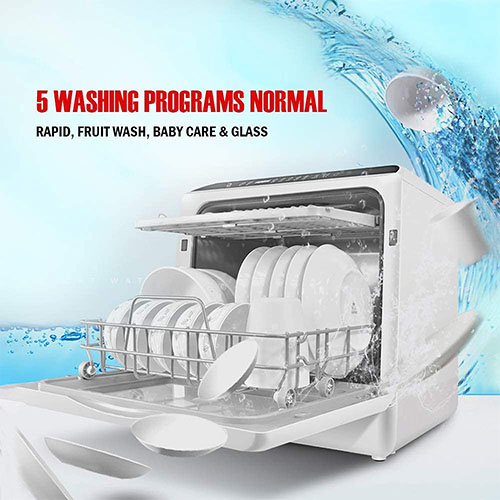
Dinner Cooking Strategies
Time management and stress reduction can be significantly improved by managing kitchen chores like preparing dinner and loading the dishwasher in tandem. This section will discuss some methods for multitasking in the kitchen so that you may take care of the dishes and dinner with the least amount of trouble.
Effective Multitasking Techniques
- Prioritize Tasks: Before starting, decide which tasks require your immediate attention and which can be handled by the dishwasher. This might include prepping ingredients for dinner while the dishwasher takes care of the preliminary load of dishes.
- Sequential Task Management: Organize tasks in a sequence that makes sense. For example, use the time when the dishwasher is running to focus on cooking. This way, you are not overwhelmed by trying to do too many things at once.
Time-Saving Cooking Tips
- Prep in Advance: Spend a few minutes before cooking to chop vegetables, measure spices, and prepare any sauces. This not only speeds up the cooking process but also minimizes the mess created during cooking.
- One-Pot Meals: Opt for recipes that require minimal pots and pans. One-pot meals are not only easier to cook but also reduce the number of dishes that need cleaning.
- Use of Kitchen Gadgets: Utilize kitchen gadgets like slow cookers or pressure cookers. These devices can cook meals efficiently without much supervision, freeing you up to manage other tasks like loading or unloading the dishwasher.
Cooking While the Dishwasher Runs
- Noise Management: If the noise from the dishwasher is distracting, consider using cooking techniques that require less attention, such as baking or simmering.
- Heat Management: Be mindful of the heat generated by both the dishwasher and cooking appliances. This is particularly important in small kitchens where excess heat can become uncomfortable.
- Safety First: Always ensure that the kitchen is safe. Keep an eye on cooking food and ensure that the dishwasher is functioning correctly.
Clean as You Go
- Wipe Surfaces Regularly: Keep a cloth handy to wipe down surfaces as you cook. This prevents the accumulation of messes and makes post-dinner cleanup easier.
- Use Spare Moments Wisely: If you have a moment while waiting for something to cook, use this time to tidy up, put away ingredients, or load any newly used dishes into the dishwasher.
You may maximize the amount of time you spend in the kitchen by putting these cooking techniques and advice into practice. This method not only makes the kitchen more orderly, but it also guarantees that supper will be ready without you having to worry about a mountain of dirty dishes to clean up afterward. With a little preparation and the appropriate methods, you can savor your dinner with the peace of mind that your dishwasher will take care of the cleanup.

Using Your Dishwasher Effectively
In the realm of kitchen efficiency, mastering the art of running your dishwasher concurrently with dinner preparation is a game-changer. This section delves into strategies for optimizing your dishwasher’s use, ensuring not only cleaner dishes but also a seamless kitchen experience.
- Get Started During the Party: Sometimes, the best time to kick-start your dishwashing is when the guests are still around. Sneaking away to the kitchen to load a few dishes can set you up for less cleanup later. This tactic is particularly useful during holiday gatherings or parties.Key Point: Start the dishwasher early to reduce post-party cleanup stress.
- A Few Final Tips on Holiday Dishwashing: Holidays can be hectic, with a flurry of activities around the kitchen. Here are some additional tips to ensure your dishwasher is an ally in this chaos:
- Pre-Sort Your Dishes: Before even starting the dishwasher, sort your dishes. Plates, bowls, and larger items should be separated from utensils and smaller kitchenware. This pre-sorting can speed up loading and ensure that everything fits more efficiently.
- Scrape, Don’t Rinse: Modern dishwashers are designed to handle a certain amount of residue. So, while you should scrape off large food particles, there’s no need to rinse every dish thoroughly before loading. This saves time and water.
- Use the Right Detergent: Select a high-quality detergent suitable for your dishwasher model. The right detergent can make a significant difference in cleaning efficiency and dish sparkle.
- Common Dishwashing Mistakes and How to Avoid Them: Avoid these common pitfalls to ensure your dishwasher does its job effectively:
- Letting dishes pile up: A stacked-up sink can lead to bacterial growth. Try to load the dishwasher regularly to prevent this.
- Using too much soap: Overuse of detergent can leave a residue on your dishes. Stick to the recommended amount.
- Drying with a dirty towel: If you’re not using the heat-dry function of your dishwasher, make sure to use a clean towel for drying to avoid contaminating your clean dishes.
- Washing with cold water: Ensure your dishwasher is set to the right temperature (around 120 to 140 degrees Fahrenheit) to effectively kill bacteria.
- Scrubbing with a sponge: Sponges can harbor bacteria. Use a clean brush or consider a dishwasher with an integrated pre-wash feature.
- Forgetting to empty the food trap: Regularly clean out the food trap to prevent clogs and maintain dishwasher efficiency.
- Not loading the dishwasher the right way: Proper loading ensures all items are adequately cleaned and prevents damage.
Key Point: Avoiding common dishwashing mistakes leads to cleaner dishes and a more efficient kitchen.
By incorporating these tips into your routine, you can elevate your kitchen efficiency. The dishwasher becomes more than just an appliance; it’s a key player in your strategy for a clean, organized, and well-managed kitchen environment.
Italicized keywords: dishwashing, kitchen efficiency, clean dishes, dishwasher use optimization
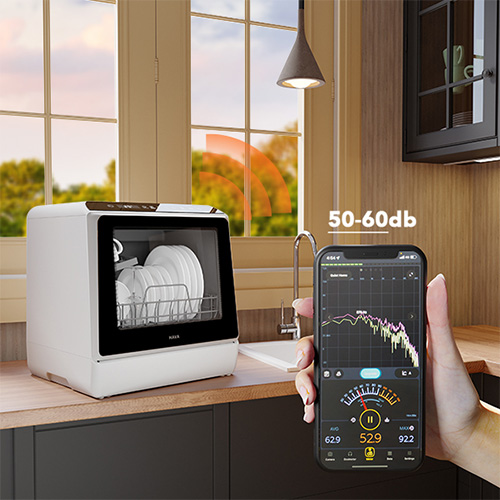
Dishwasher Tips for Cleaner Dishes
Making dinner while your dishwasher is running can be a seamless and efficient experience if you know how to use your dishwasher effectively. Here are some essential tips to ensure that your dishes come out clean every time, allowing you to focus on preparing a delicious meal without worrying about post-dinner cleanup.
1. No Need to Rinse
- Modern dishwashers are designed to handle tough food residues. If your dishwasher is less than 10 years old, you typically don’t need to rinse dishes before loading them. However, wiping off large chunks of food can prevent clogging.
- For older models, a quick pre-rinse in warm water might be necessary to avoid leaving food particles on dishes.
2. Load Dishes From Back to Front
- Loading your dishwasher strategically can make a significant difference. Start by placing dishes at the back and moving towards the front. This approach ensures that every item is properly exposed to water jets and detergent.
- A well-organized dishwasher also simplifies the unloading process, saving you time and effort after your meal.
3. Arrange Plates Facing Inward
- Most dishwashers spray water from the bottom center. To ensure the best cleaning results, arrange plates and other flatware facing inward towards the spray arms.
- This orientation allows the water jets to effectively reach and clean the surface of each plate.
4. Delicate Items on the Top Rack
- Place fragile items, such as glasses and plastic containers, on the top rack. The water pressure here is gentler and less likely to cause damage.
- The top rack’s slightly cooler temperature also prevents delicate items from warping or cracking.
5. Mix-up the Silverware Basket
- Resist the urge to sort your silverware by type when loading. Mixing forks, spoons, and knives helps prevent nesting and ensures a more thorough clean.
- Position some pieces with handles up and others down to maximize exposure to water and detergent.
6. Don’t Overload
- Overloading the dishwasher can lead to poorly cleaned dishes. Ensure there’s enough space between items for water and detergent to circulate effectively.
- Running two moderately filled loads is often more effective than cramming everything into one.
7. Close the Door with Care
- Before closing the dishwasher door, ensure that no items are sticking out. This precaution prevents damage to both the dishes and the appliance.
- Gently guide the racks into position to avoid any collisions between dishes.
8. Give the Top Rack a Rattle
- A quick shake of the top rack can reveal if any items are loose or at risk of colliding. Securely place each piece to prevent movement during the wash cycle.
- Properly loaded dishes should barely touch each other, minimizing the risk of breakage.
9. Using the Right Amount of Soap
- Using too much detergent can harm your dishes over time. Stick to the recommended amount for your specific dishwasher model.
- Always read the instructions on your detergent packaging and use the dispenser as a guide.
Following these simple yet effective dishwasher tips can transform the chore of dishwashing into a hassle-free component of your dinner routine. Not only will these practices lead to cleaner dishes, but they also contribute to the longevity of your dishwasher, ensuring it remains a reliable ally in your kitchen.
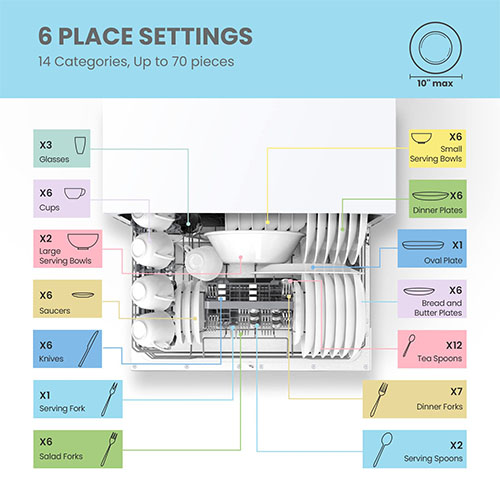
Conclusion
In this journey of balancing kitchen efficiency, we’ve explored various strategies and tips for Making Your Dinner While Dishwasher Cleaning Your Dishes. Let’s recap the key takeaways:
- Efficient Kitchen Management:
- Emphasize the importance of planning and organization.
- Highlight how multitasking in the kitchen can save time and reduce stress.
- Dinner Preparation and Dishwasher Use:
- Combine cooking and cleaning to maximize efficiency.
- Utilize the dishwasher’s capacity to the fullest while preparing dinner, ensuring a smooth transition from cooking to cleaning.
- Optimizing Dishwasher Use:
- Understand the best practices for loading and running the dishwasher.
- Identify common dishwashing mistakes and learn how to avoid them for cleaner dishes.
- Tips for Cleaner Dishes:
- Follow specific loading techniques to ensure every dish comes out spotless.
- Apply these tips to get the most out of your dishwasher, saving energy and water.
- Final Thoughts:
- Embrace these tips to improve your kitchen efficiency and effectiveness.
- Remember, a well-managed kitchen leads to more enjoyable cooking experiences and less time spent on chores.
In conclusion, in today’s fast-paced world, knowing how to swiftly prepare dinner while the dishwasher cleans your dishes is an invaluable ability. You may make your kitchen habits more effective and pleasurable by implementing these tactics and advice. Always keep in mind that efficiency in the kitchen requires planning ahead, multitasking, and making the most of what you have. Cheers to a successful cleaning and happy cooking!



